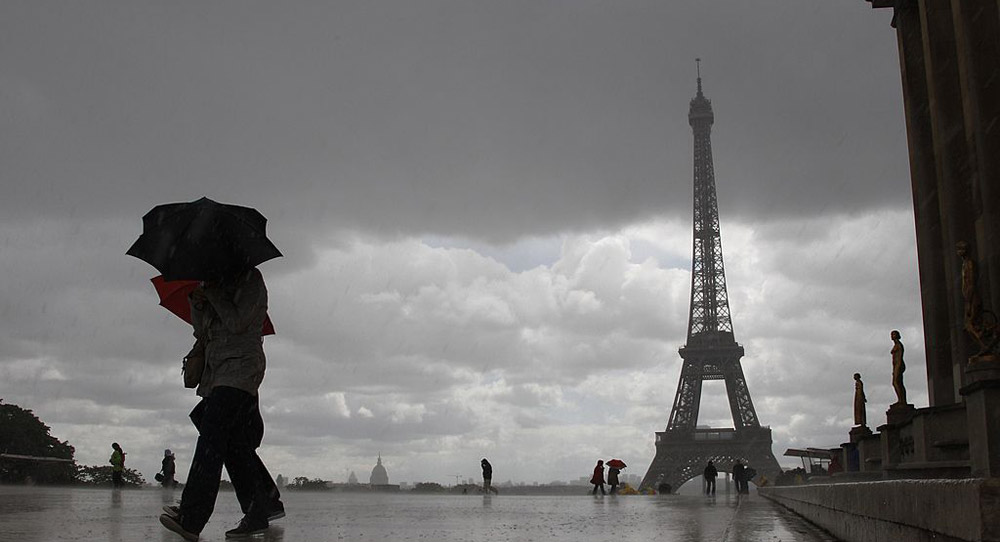France experienced many major political crises throughout the twentieth century: the radical right-wing riots of February 1934; the collapse of the Third Republic in 1940, followed by the fall of the Fourth Republic in 1958; and the social upheaval on the streets of the capital in May 1968. Some of these episodes led to significant institutional changes, for example in the aftermath of 1958. This is the kind of game changer that France would have to cope with were National Front Leader Marine Le Pen to be elected president on May 7 this year.
While this hypothesis is being widely discussed in many countries, the French are for the moment overlooking the possibility of such a scenario. They are being reassured by an electoral system based on two rounds of ballots, in which the probability of the country electing a candidate who rejects the traditional republican system is supposed to be very low.
So far, France has benefited from a sort of collective discipline emanating from wake-up calls between the first and second rounds of presidential elections. In 2002, after thirty years of continuous efforts to build a radical political alternative, less than 20 percent of voters chose far-right candidate Jean-Marie Le Pen over the center-right incumbent, Jacques Chirac, in the second round. Five years later, Le Pen’s daughter Marine was strongly defeated by both the center-right and the Socialist candidates in the first round.
Unlike the UK and the United States, the French state has been governed by a far-right coalition in the past: in 1940, France was invaded by the Nazis, and Marshal Philippe Pétain’s government led to a loss of national pride. This painful memory remains a wound for the elderly in France, a group of the population that tends to vote more regularly than others in national elections. They are in favor of the EU and against Marine Le Pen’s project to take France out of the eurozone.
This time, however, the election is far from straightforward. Three main reasons can help explain this.
First, France has not yet recovered from the 2008 recession. Unemployment remains high (10 percent in 2016), private investments are still weak, and the budget deficit exceeds 3 percent of GDP. In a nutshell, France is doing badly economically and no longer seems able to be a reliable partner for other European countries, particularly Germany.
Second, France has a conflictual relationship with both its own history and its role in the era of globalization. Historically perceived as a pillar of Europe, France now seems to be hindering its construction. Chirac, president from 1995 to 2007, was able to recognize the debt contracted by the country toward those who were arrested and murdered by the Nazis during World War II, but his successors have so far failed to deal with other dark moments of recent French history, particularly decolonization. Fifty-five years after the peace agreements signed by France and Algeria in Evian, there is still no shared memory between the two countries, which remains a source of conflict even within the French population.
Third, French political leaders have lost the people’s trust. The two most recent French presidents, Nicolas Sarkozy and François Hollande, were widely rejected at the end of their terms. Due to his unpopularity, Hollande was unable to run for a second term this year. In the meantime, a general lack of trust of mainstream politicians has allowed Le Pen to be prosecuted without her reputation being damaged. This is a phenomenon that never occurred in the Fifth Republic—that is, in the last fifty-nine years. It is still unclear whether centrist candidate Emmanuel Macron and the center-right François Fillon will finish ahead of Le Pen in the first round on April 23.
For all these reasons, France is perceived as Europe’s weak link, as Germany was in the 1990s. In this context, the election of either Fillon or Macron would be good news for France. Both candidates are eager to conduct deep reforms, despite differences in their methods.
They are committed to delivering a strong and comprehensive labor market bill, as Germany did with its Hartz legislation in 2003–2005, even if it seems clear that such a move is unlikely to be supported by traditional left-wing parties and trade unions. Moreover, only a majority in France’s National Assembly will be able to adapt the country’s current labor regulations to an increasingly digital world. And both Fillon and Macron wish to decrease the tax burden on labor and capital for France to improve its competitiveness. Fillon is ready to go further than Macron in terms of cutting public spending, but they are choosing the same path.
This is an important first step for France to regain self-confidence and credibility on the European stage. The German parliamentary election in September will represent a key moment for the future of Europe. The new (or reelected) chancellor will either trust the French to go forward or decide to work on its own.
So far, France’s political leaders have scapegoated the EU institutions for pushing them to conduct reforms they were reluctant to implement. The new French president will have to alter this unproductive habit and prepare for an ambitious set of pragmatic reforms. Only this will contribute to saving the EU.
Alice Baudry is the head of international affairs at the Institut Montaigne. Laurent Bigorgne is the director of the Institut Montaigne. This blog post is the first in a set of contributions providing insights into the 2017 French presidential election.






